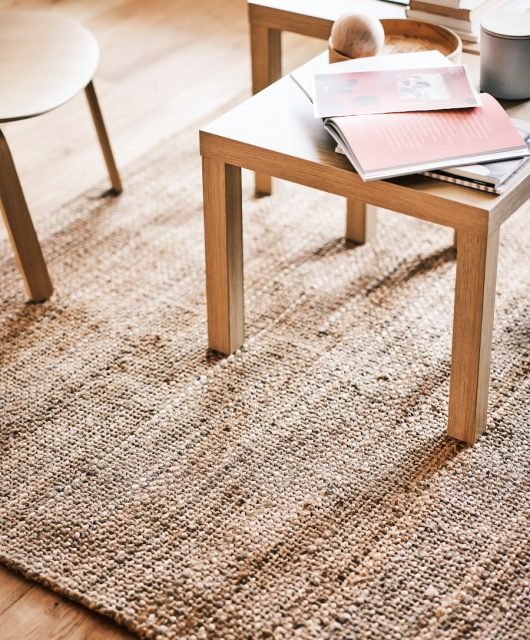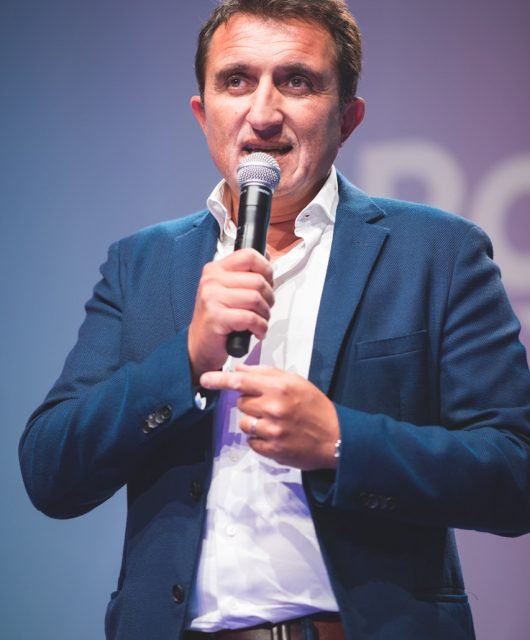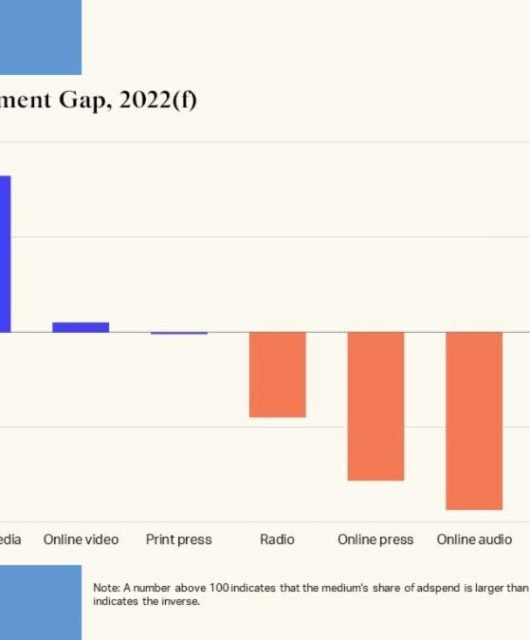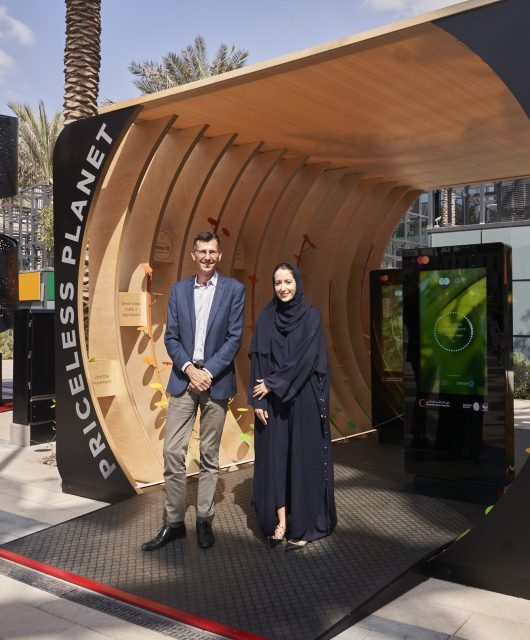Week: September 14th – 18th
Several weeks ago, when the gravity of the situation became clear, Interbrand started regular reporting on how brands were dealing with the COVID-19 crisis. What’s now becoming clear is that the current climate is one of near perpetual disruption. So the brand consulting firm made the decision to keep on telling the stories of inspiring brand leadership and strategy amid the latest crises in an anxious world. Interbrand’s goal remains the same: to provide an up-to-the-minute source of information, inspiration and insight on brand moves as they happen.
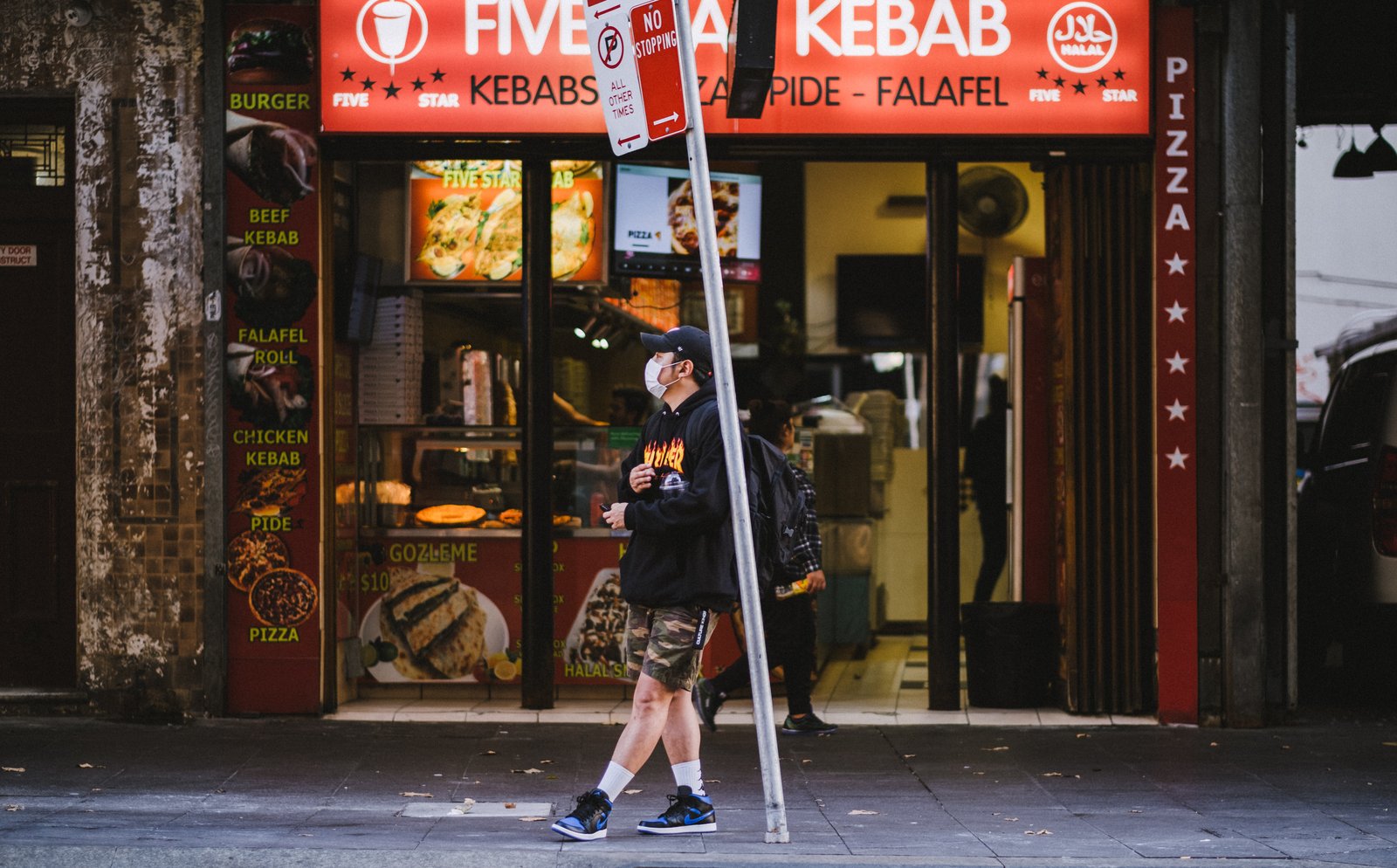
Travel & Tourism
National airline Thai Airways, which has for months grounded most of its planes, has transformed the cafeteria of its Bangkok headquarters into an airline-themed restaurant and opened it to the public. Thailand has halted commercial flights to try to prevent coronavirus infections. But diners can still get to meet cabin crew, who greet them in full uniform as they enter the restaurant.
It is decorated with airplane parts and seats to lend it an authentic aircraft feel. “Spare parts from engines, windows and fan blades were used as furniture,” Thai Airways Catering Managing Director Varangkana Luerojvong said. Varangkana said the restaurant, which serves about 2,000 meals per day, was a way to recoup some lost revenue during the coronavirus pandemic, and there are plans to turn other Thai Airways offices into similar dining experiences.
Airlines desperate for governments to lift travel restrictions and passengers to return are looking at ways to reassure the public that their health won’t be compromised on a flight. New-look seats and fresh cabins could be a start. One of the biggest companies in that business, Recaro Aircraft Seating, has designed a range of modifications including headrest canopies and fabric barriers between seats to keep passengers apart and protect them from infection.
With a coronavirus vaccine possibly years away, airlines need to persuade the public it is safe to fly when an infected passenger might be next to them. Sporadic flareups around the world are putting people off: Global traffic in July was down almost 80% from a year earlier, a steeper-than-expected slump, the International Air Transport Association said last week.
Of the planes that are flying, many are half empty. Aircraft typically must be 70% to 80% full to turn a profit, so that increases the appeal of devices that let passengers sit side by side without touching heads, brushing shoulders or nudging elbows. Airlines are also figuring out how to apply a disinfectant coating developed by Recaro onto their seats, Chief Executive Officer Mark Hiller said. The German company says it has revamped the substance to repel viruses including Covid-19. Recaro, which sold about 150,000 aircraft seats last year, isn’t immune to the crisis gripping the aviation industry, despite potential demand for its designs. Hiller said revenue is expected to drop almost 60% this year. “Even if airlines aren’t going to buy new planes, they might go for new cabins that are more comfortable or adapted to Covid,” he said.
Social Media
Pinterest has doubled down on its commitment not to get bogged down with politics. The inspiration-sharing site was early to the movement to ban political ads from social media, kicking them off the platform in 2018. LinkedIn, TikTok and, perhaps most notably, Twitter have taken the same step in the last two years.
Under pressure to fact-check political ads, Facebook recently introduced a feature to allow users to opt out of political ads and has announced that it will not sell new political ads in the week leading up to Election Day. Pinterest will also feature more “educational resources” about voting on its Today tab, the platform’s curated content hub that debuted in March.
However, the company won’t promote political content in its algorithmic suggestions on the home feed, related Pins or the More Ideas panel. “Our users don’t come to Pinterest for divisive political debate, [and] we’re not looking to become a go-to destination for that,” a spokesperson said. The company will also cease search recommendations for election-related terms.
Instead, any election-related searches on the platform—about voting, the election or specific candidates—will elicit a banner of voting information provided by the nonprofit Vote.org. The company is also extending its encouragement of civic participation to employees by offering them a full work day of paid time off to vote or serve as a poll worker. “Even if Pinterest isn’t the place for politics, we believe voting is the foundation of our democracy,” the company said, “and we want Pinterest to be a place where people know they can find credible information that inspires them to participate fully in their communities.”
Sports & Entertainment
Ex-NFL star Colin Kaepernick might not have returned to real football fields yet, but he’s back in virtual ones. Starting today, the star football quarterback who sparked a national movement, can be chosen as a player in EA Sports’ latest Madden game, Madden NFL 21, released at the end of August.
EA Sports states that players can put Kaepernick at the helm of any NFL team in Franchise mode and play with him in the game’s Play Now setting. “Colin Kaepernick is one of the top free agents in football and a starting-caliber quarterback. The team at EA Sports, along with millions of Madden NFL fans, want to see him back in our game,” EA Sports wrote in a statement.
The inclusion of Kaepernick also plays into EA’s marketing around the new game, which includes highlighting football stars who “leave their mark” on the field. EA Sports first reached out to Kaepernick over the summer to negotiate the rights to his likeness so he could return for the new game after losing the rights when he was listed as a free agent. According to the article, Kaepernick’s requests included that his avatar in the game wear an afro and have a signature celebration of a Black Power fist.
The Academy of Motion Picture Arts and Sciences has decided it will require films competing for best picture to meet criteria aimed at fostering a more inclusive Hollywood.
The criteria will come into effect starting with the 2024 Academy Awards. Since the #OscarsSoWhite campaign of 2015 criticized Hollywood for gender and racial inequality, the Academy and movie studios alike have been implementing a series of initiatives meant to include more people from underrepresented groups.
Hollywood has made some gains in recent years, but it has continued to draw criticism for predominantly employing and honoring white professionals. In a statement Tuesday, the Academy issued an expansive list of standards, detailing the many ways films can qualify under the new regulations meant to spur increased inclusion both on and off screen.
Films can qualify by meeting standards in at least two of four broad categories. Those include having at least one main actor from an underrepresented racial or ethnic group; casting at least 30% of minor actors from underrepresented groups; and telling a story that focuses on such groups.
Luxury & Fashion
Outdoor wear brand Patagonia has released a heartfelt statement about its struggle to become a more inclusive company. The acknowledgement, published on its website, says: “Patagonia has struggled to find the right words to respond to the murders of Ahmaud Arbery, Breonna Taylor, George Floyd, Tony McDade, Dijon Kizzee, and far too many others.
We’ve also struggled to express our support for the racial justice movement sweeping the country. The few words we have conveyed fell short and failed to comprehend the pain of our colleagues of color and partners in the outdoor community.
The Black Lives Matter movement has forced a reckoning of the deep racial injustice around us and laid bare our complicity. We are a white-led outdoor company reliant on recreation on stolen Native lands that are not yet safe for all. Recent months have revealed how much more we need to do to live up to our values as an activist company. We missed too much.
Our hearts hurt, but our pain is nowhere near what our colleagues who identify as Black, Indigenous, or people of color have suffered. We are sorry for the harm we’ve caused. To truly step up to this work, we must confront Patagonia’s lack of progress and take full ownership of the legacy of our failures. We must listen to and support our Black, Indigenous and colleagues of color first and commit to becoming a more inclusive and equitable company.
And we will amplify the true leaders on justice and equity in the environmental movement and outdoor industry. This work is urgent and lifelong. We will never be “done.” We’re recommitting our time and resources to this essential part of our mission. We welcome having our eyes opened to what we ignored. We’re building a foundation for our work by listening more deeply to our colleagues of color to learn from their experiences and insights.
We’ve begun company-wide learning sessions to create a shared understanding of what it means to be an antiracist company. And we’re updating policies to make equity more explicit. Talk is cheap. In the months ahead, we’ll share our progress so that we can be held accountable. We’re in business to save our home planet, but we can’t possibly do this alone. We must focus on those most impacted by the environmental crisis and follow their lead. We are here for the work of forging a more just world.”
Luxury fashion house Gucci is no longer just designing physical products, but also virtual clothes, shoes, and accessories that exist entirely in the digital realm. Over the last few years, Gucci has created digital versions of its latest collection for a fashion-themed video game, athletic wear for a popular tennis game, and virtual looks for online avatars.
And this month, it will launch a platform to let users design virtual sneakers and then put them on their feet using augmented reality. These items may inspire consumers to buy Gucci products IRL, but they could also have value simply as digital goods.
“The virtual world is creating its own economy,” says CMO Robert Triefus. “Virtual items have value because of their own scarcity, and because they can be sold and shared.” Someone recently dropped $2,400 on a pair of virtual sneakers in a mobile game called Aglet; another spent $9,500 on a digital dress that only exists on Instagram.
Gucci is now designing with these video games and virtual realities in mind. Triefus says that for about five years, the brand’s designers create with the assumption that clothes will exist on the runway but may also be worn by avatars and incorporated into games. “The worlds of fashion and gaming are colliding,” Triefus says. “We’re approaching gaming with a sense of experimentation, because this will put us in a good position to be ahead of the trends when they become ingrained.” The brand’s approach makes sense: 2.5 billion people around the world play video games, and that figure just keeps growing.
The average gamer is 33 years old and upper middle class, which aligns nicely with Gucci’s target demographic. Players spend an average of seven hours a week on games and collectively spend an estimated $100 billion on virtual goods. This has risen since the pandemic began.
Retail
UK supermarket chain Tesco is to trial home deliveries by drone in a move that could allow small items to be dispatched to customers within 30 minutes to an hour of ordering.
Britain’s biggest retailer has teamed up with the drone delivery company Manna and will conduct the six-month trial next month delivering essentials from its Oranmore store in Co Galway, Ireland, where Manna has a license to operate.
The trial is aimed at “small baskets” – a market Tesco estimates will be worth £10bn in the UK in the coming years. Claire Lorains, group innovation director at Tesco, said: “We are interested to see how drones could be part of the solution to deliver to our customers on-demand small baskets.
If our trial with Manna is successful, we believe there is an opportunity to reach many customers through our stores, extending via our drone service.” Food retailers around the world have expanded their delivery services since the Covid-19 pandemic and several are following Amazon in trialing drones. The online retail giant started testing drones several years ago. Amazon claimed its first successful Prime Air drone delivery in Cambridge, UK in December 2016 when it delivered a TV streaming stick and bag of popcorn directly to the garden of a nearby customer.
Walmart, the world’s biggest retailer which also owns the UK supermarket chain Asda, also said that it would run a project to deliver grocery and household products via drone delivery firm Flytrex.
Marketing
According to research specialists Nielsen, consumers are turning to the smaller luxuries in life as they abandon expensive vacations and delay big purchase items such as cars and appliances. In US off-premises channels, wine is up 25.5% in dollar growth for weeks February 29-August 15 and up 17.7% for the week ending August 15.
Sparkling wine growth (+35.5%) continues to outpace growth of table wine (+13.5%), with French champagne leading (+72.3%) in the week ending August 15. Wine-based cocktails are also seeing consistently high levels of growth. Across Europe, there are also signs of big sales lifts in similar items. In the United Kingdom, champagne sales are steadily tracking at about 15% up and in Russia, premium spirits are seeing higher ongoing levels of demand.
Nielsen analysis in the US highlights which consumers of key leisure and lifestyle activities are likely to trade up in order to compensate for the larger dining or vacation experiences they can no longer safely access: US consumers who traveled abroad in the last three years are 21% more likely to purchase artisan bread and 11% more likely to purchase sushi than the average American.
Similarly, Americans who visited restaurants in the last 12 months are 15% more likely to purchase cheese party platters and 10% more likely to purchase alcoholic beverage mixes. At the same time, Americans are spending more on ’DIY’ categories such as baking, nail polish, hair coloring, and sushi (seaweed/sushi wraps have been in the +50% range in recent weeks). All those weeks in lockdown, and a desire to find ways to contain spending, mean the shift in dollars from out-of-home to in-home is continuing.
Automotive
Meanwhile, General Motors has said that it would take a $2 billion equity stake in Nikola, a start-up aiming to make electric and hydrogen-powered trucks, valuing the start-up at nearly $19 billion. GM said it would build pickup trucks for Nikola and provide battery pack technology in exchange for an 11 percent stake.
In a statement Nikola said it expects the partnership will save more than $4 billion in battery and powertrain costs over 10 years, while GM said it expects to receive more than $4 billion in benefits stemming from the equity value of its stake, and supplier and manufacturing contacts with Nikola. “Our backgrounds are different but we share the goal of putting as many EVs [electric vehicles] in the hands of our customers as possible,” GM’s chief executive, Mary T. Barra, said.
To read the full report, please download here.
To access daily Brand Moves, please visit www.brandchannel.com.

